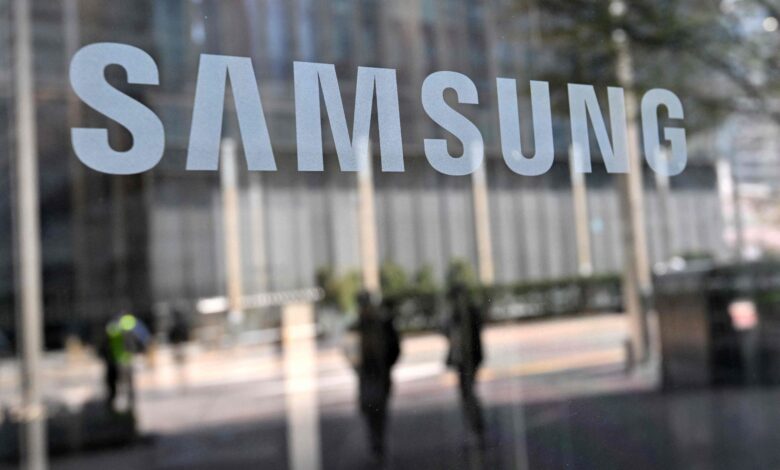Samsung says Q1 operating profits soar nearly tenfold on-year

SAMSUNG Electronics said on Tuesday that its first-quarter operating profits had risen nearly tenfold year-on-year – a 931.8 per cent increase – amid recovering chip prices and growing demand.
The firm is the flagship subsidiary of South Korean giant Samsung Group, by far the largest of the family-controlled conglomerates that dominate business in Asia’s fourth-largest economy.
“Operating profit increased to 6.61 trillion won (S$6.6 billion) as the Memory Business returned to profit by addressing demand for high value-added products,” it said in a statement.
Samsung said the company’s strong performance came “on the back of strong sales of flagship Galaxy S24 smartphones and higher prices for memory semiconductors”.
Sales were up 12.8 per cent on-year to 71.9 trillion won, the company said.
The company, one of the world’s largest producers of high-tech semiconductors, said the crucial area had returned to profit and grown “by addressing the demand across servers, storage, PC and mobile,” it said.
GET BT IN YOUR INBOX DAILY

Start and end each day with the latest news stories and analyses delivered straight to your inbox.
This success has come thanks in part to “focusing on high-value-added products such as HBM, DDR5, server SSDs and UFS 4.0., along with the increase in ASP,” it said, referring to high-tech memory chips.
“Looking ahead to the second quarter, the industry is expected to remain solid, led mainly by demand for generative AI,” the company added.
The weakness of the Korean won – down nearly seven per cent against the US dollar so far this year – “resulted in a positive impact on company-wide operating profit of about 0.3 trillion won compared to the previous quarter,” Samsung added.
Samsung’s net profit of 6.75 trillion won exceeded market expectations, which had been estimated at 4.99 trillion won, according to a survey conducted by the financial data firm Yonhap Infomax.
Focus on AI
South Korean chipmakers, led by Samsung, enjoyed record profits in recent years as prices for their products soared, but a global economic slowdown dealt a blow to memory chip sales.
However, the semiconductor market had been predicted to recover this year and grow 11.8 per cent, according to industry monitor World Semiconductor Trade Statistics.
The news from Samsung comes after South Korea’s SK Hynix – the world’s second-largest memory chip maker – announced in January that it had returned to profit after four consecutive quarters of losses.
Samsung’s “overall outlook is secured by a resurgence in the smartphone market, escalating DRAM prices, and a modest decline in FED interest rates,” Brady Wang, associate director of market research firm Counterpoint, told AFP.
“Samsung is strategically positioned to thrive amidst the evolving market conditions.”
But to maintain its momentum, the tech giant needs to “focus on accelerating development in emerging areas like High Bandwidth Memory, crucial for AI and high-performance computing,” he said.
Semiconductors are the lifeblood of the global economy, used in everything from kitchen appliances and mobile phones to cars and weapons.
And demand for the advanced chips that power AI systems has skyrocketed thanks to the success of ChatGPT and other generative AI products.
Semiconductors are South Korea’s leading export and hit US$11.7 billion in March, their highest level in almost two years, accounting for a fifth of South Korea’s total exports, according to figures released by the trade ministry. AFP





